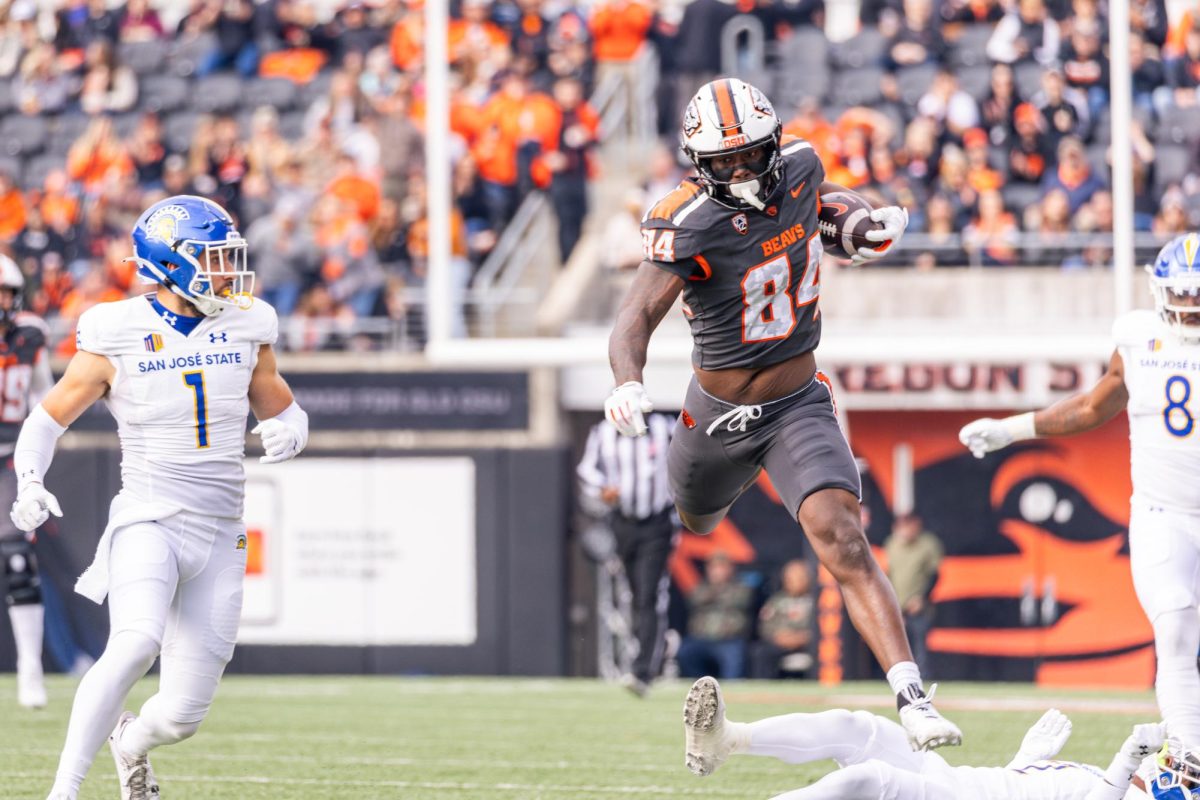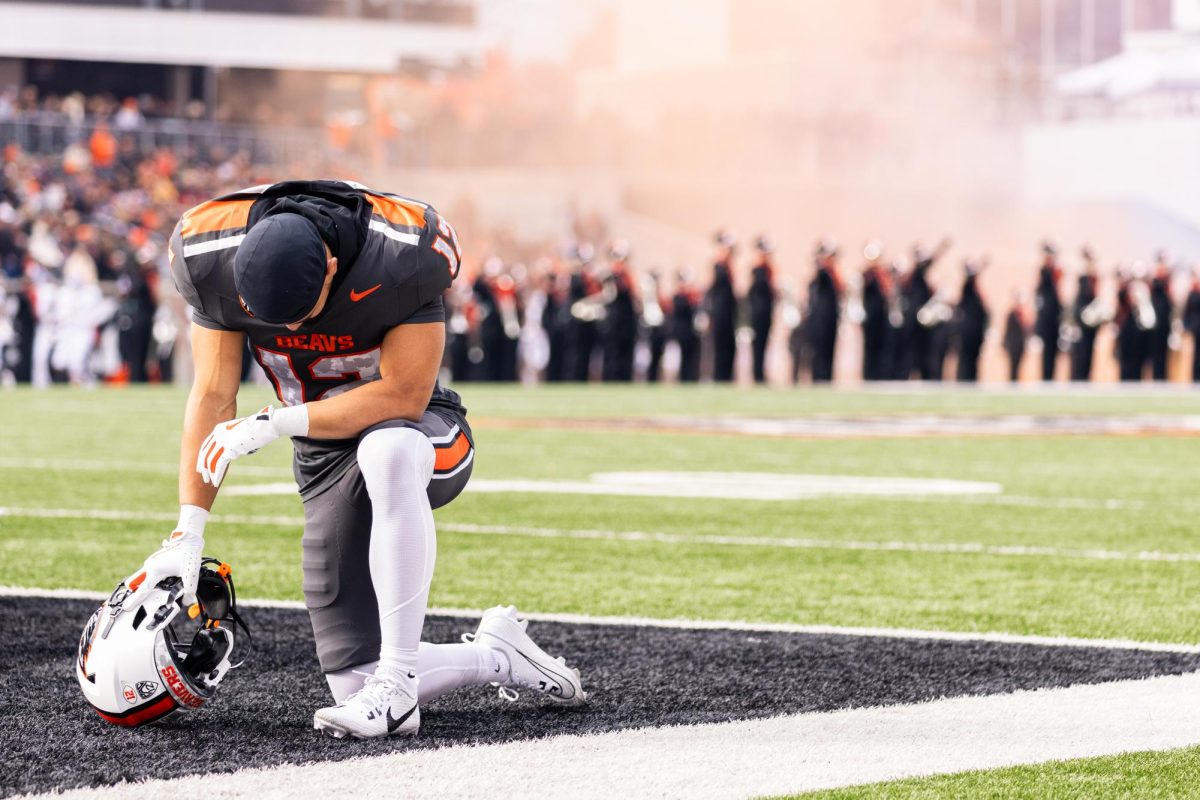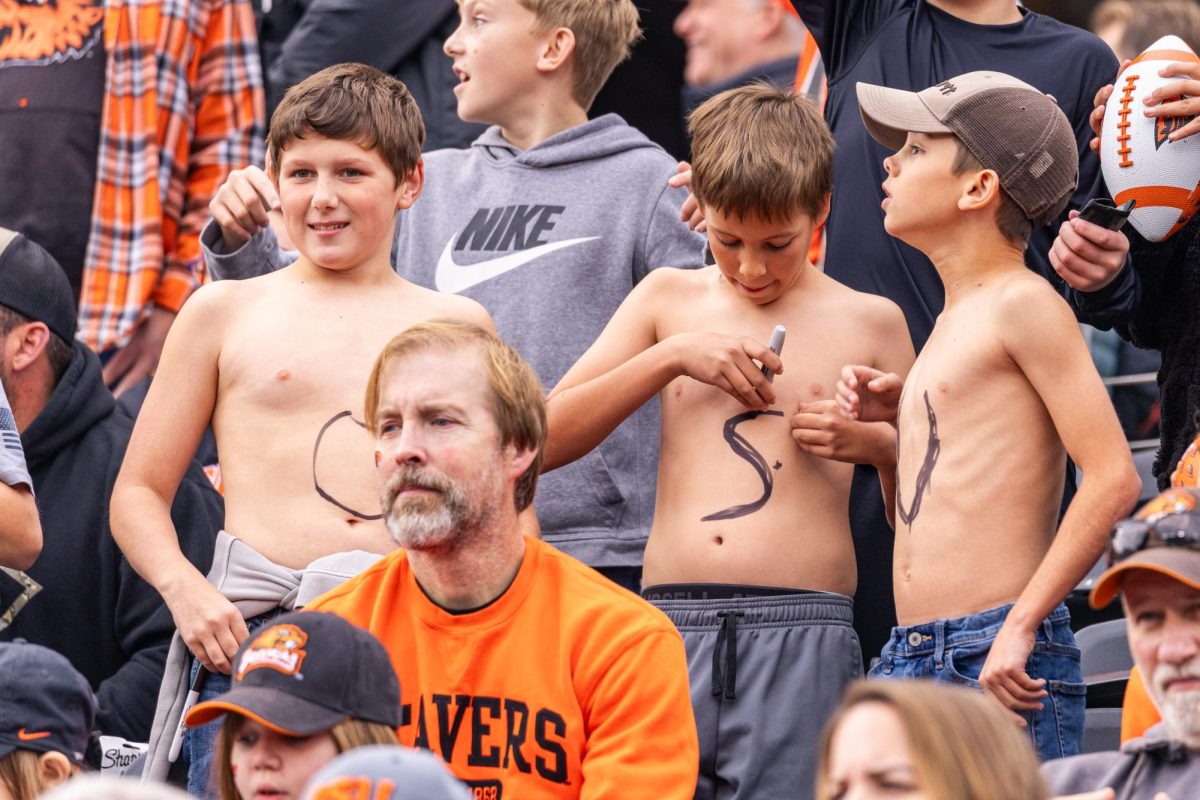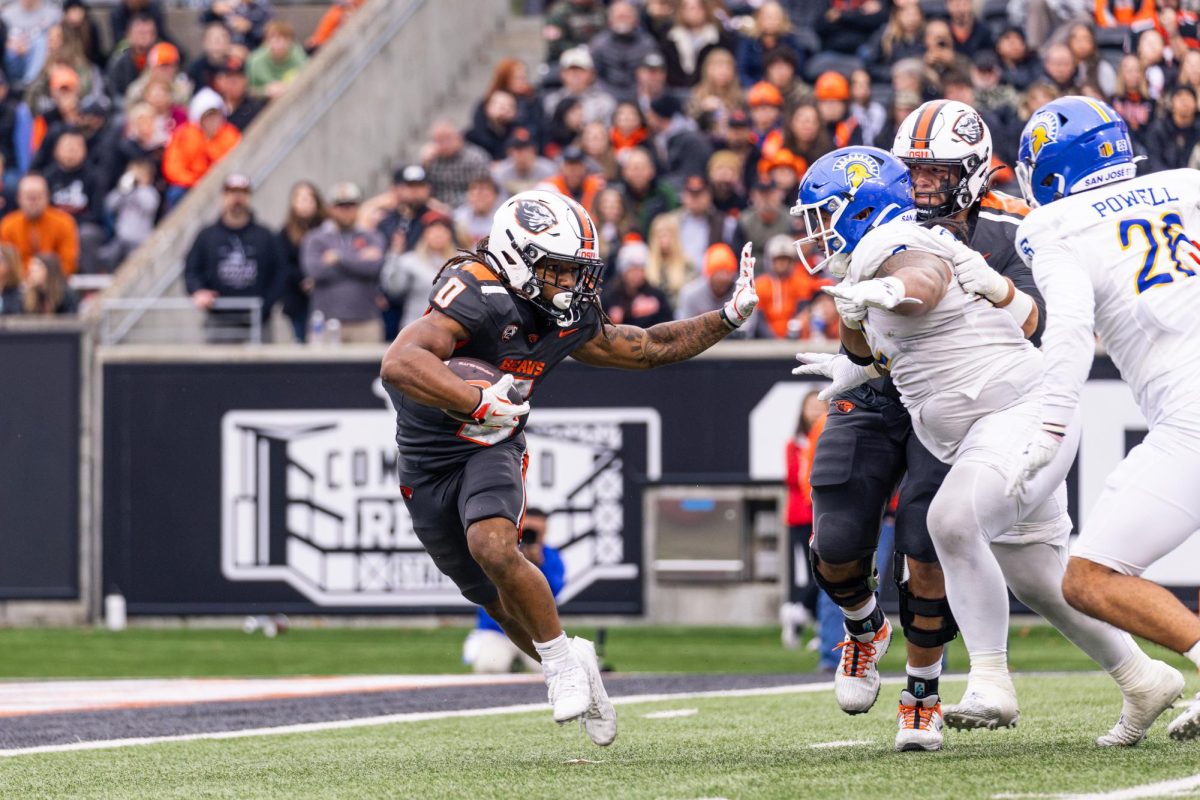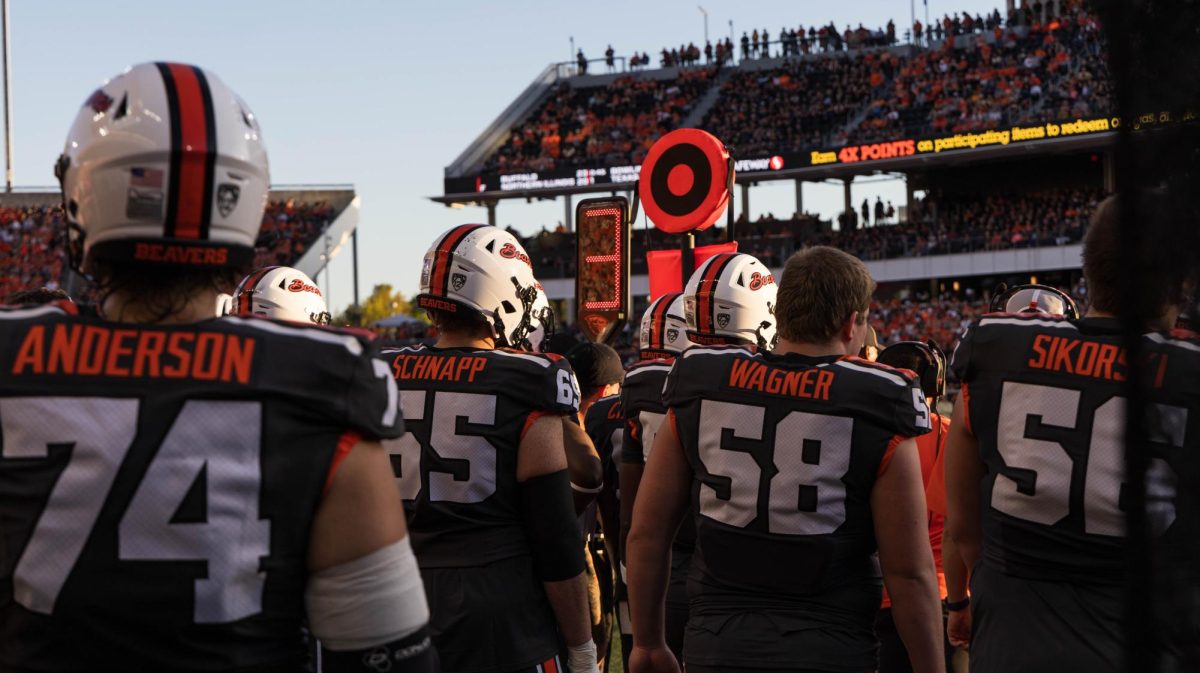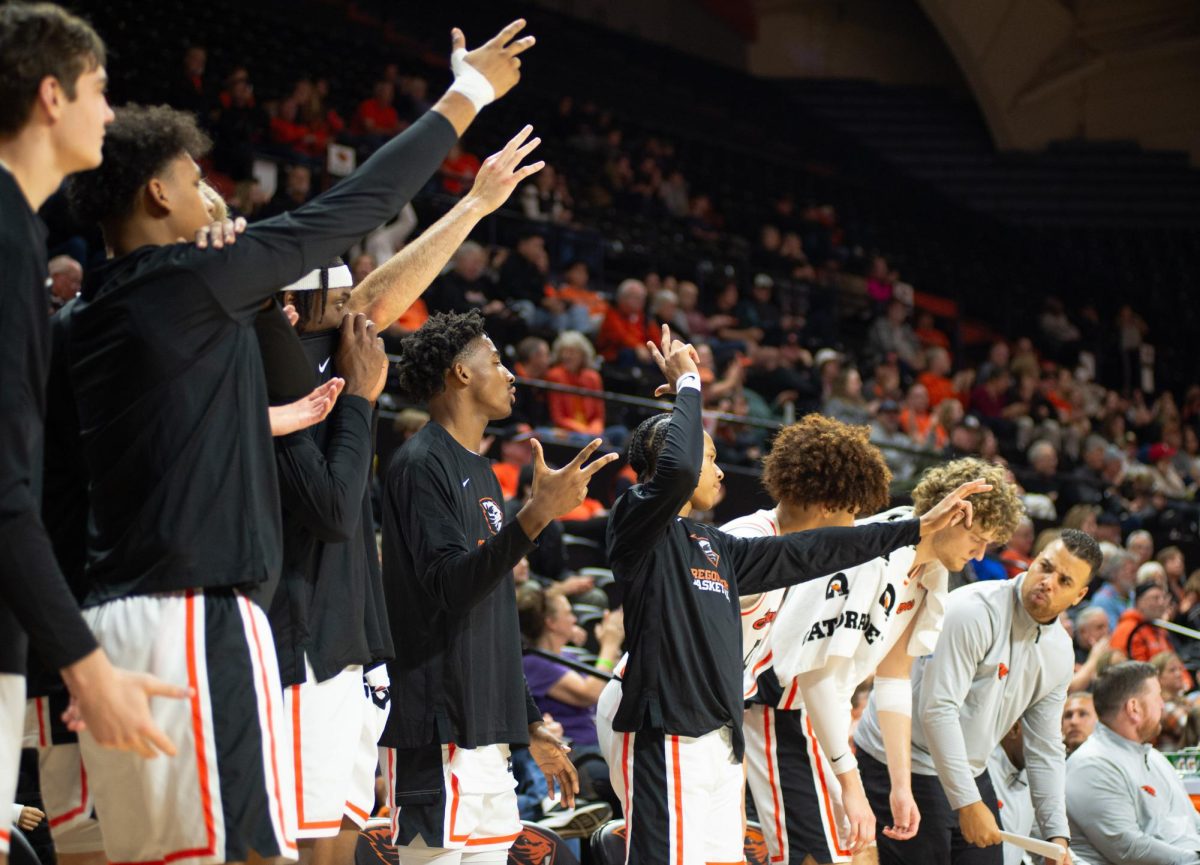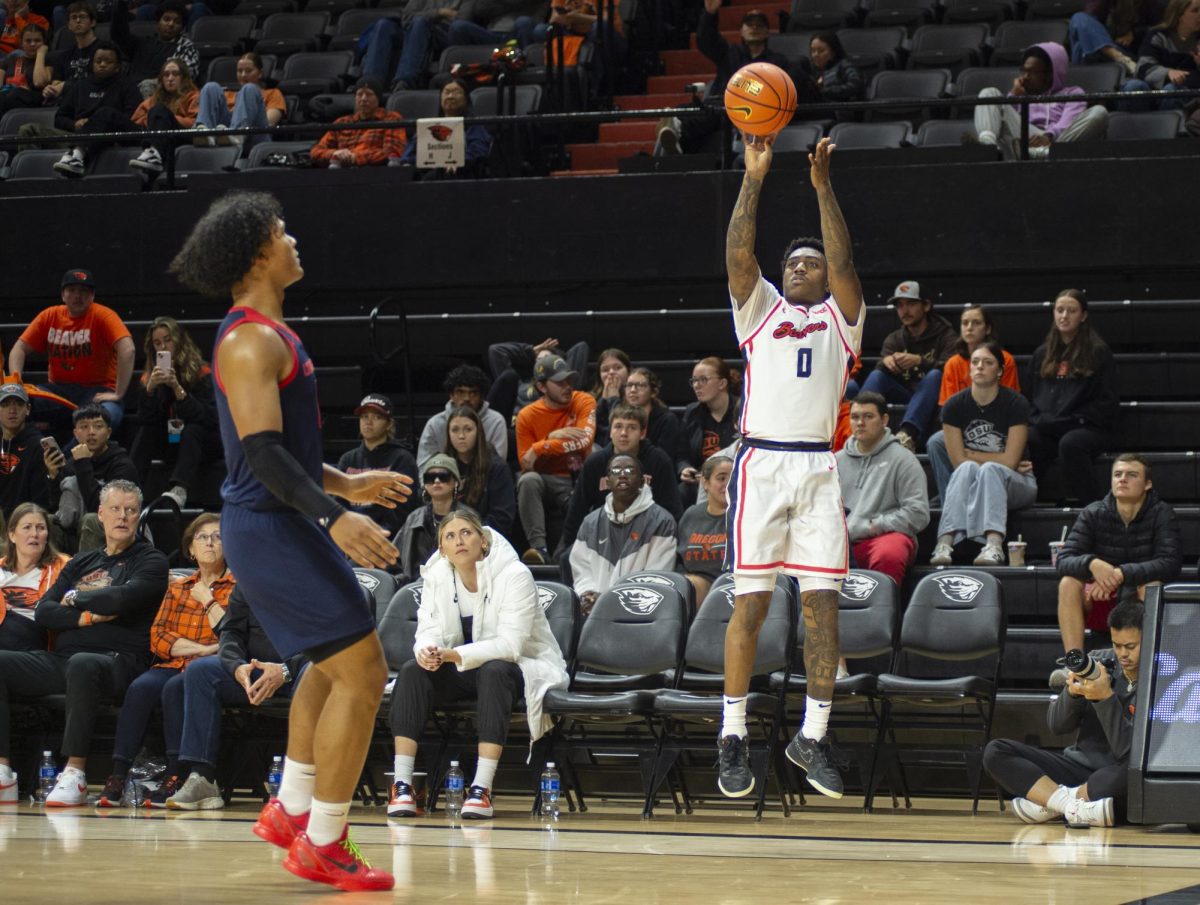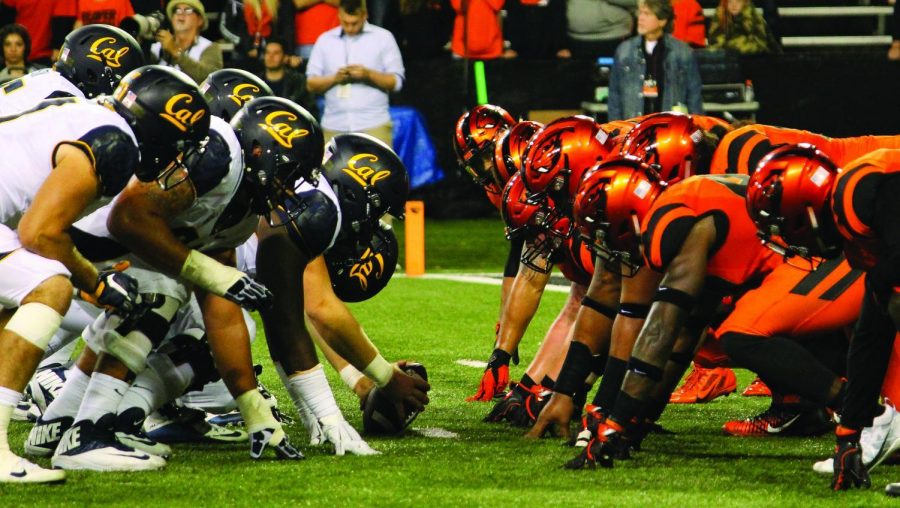OSU defense looks to tighten down the run defense against Utah
October 14, 2016
After giving up 317 rushing yards against Cal, Beavers look to improve in the trenches
For the first time since October of 2013, the Oregon State football team will try to win back-to-back conference games.
The Beavers are set to host the Utah Utes this Saturday at 1 p.m. Utah’s offense have found themselves in a lot of fourth quarter situations so far this season, so they know how to execute late in the game and under pressure.
Last week, OSU was up 17 points against Cal; until Cal came back, scored back-to-back touchdowns, and brought the score to 41-38 Beavers – with 2:41 to play. Cal then tied the game with 0:05 left on the clock.
It ended up going into overtime. Junior quarterback Darell Garretson ran it in for a 16-yard touchdown to give the Beavers the 47-44 win over the Golden Bears. It was their first Pac-12 win in the Gary Andersen era.
The Oregon State defense is facing a different offense this week against Utah. Where Cal is known for their passing offense, Utah is known for their ground attack. After giving up 317 yards on the ground to Cal, the OSU defense recognized they need to tighten up their rush defense in preparation for Utah.
“Cal had a great offense, and they made us work (the last) 11 minutes,” defensive coordinator Kevin Clune stated at Wednesday’s practice. “They found a weakness in us, and a lot of that is my fault. I wasn’t calling a lot of run defense, so I have to do a better job at that against Utah.”
One of the problems OSU still continues to face, is being able to put together a full 60-minute game.
“We cannot get complacent,” said true freshman outside linebacker Joah Robinett. “We have to stay locked in, stay focused, and find ways to get out of drives late in the game.”
Utah has a strong running offense, averaging 180 yards per game, but two of their key running backs will not be playing in Saturday’s game due to injury.
“From what we know about them so far, they are down to their third string running backs, and third string center,” said junior defensive end Baker Pritchard. “But the quarterback is good, and he likes to run the ball a lot. So our game plan this week will be to come in and play the run and adjust to the pass if we need to.”
Troy Williams, junior quarterback for Utah, currently ranks fourth in the Pac-12 in yards per completion. He has 92 rushing yards and three touchdowns on 41 carries this season.
“(Troy) is a good quarterback,” said Clune. “He’s a dangerous runner; and that hurt us in Minnesota. But we just have to pick up on that; our perimeter defense has to pick up on that. Even though they have running backs out hurt, they’re going to find a way to run the ball.”
Robinett saw the field for the first time against Cal. Andersen and Clune both say that we will see him out on the field again against Utah, Saturday.
“Joah did a tremendous job (against Cal),” Clune said. “Whenever you have a guy who’s intelligent, and a guy who will give you 100 percent effort, he has a chance. He did a tremendous job, he made some plays, and I’m very proud of him.”
Robinett had a total of five tackles and will continue to work on the mental side of the game, to prepare for Utah.
“I’m not the biggest, I’m not the strongest, and I’m not the fastest; so I have to beat people some other way. And I choose to beat them with the mental side of the game,” said Robinett at practice on Wednesday.
“(Utah’s) run game is good,” he continued. “I know they have a couple backs injured, but the quarterback is very athletic. He can get out of the pocket and run the ball, which is different from Cal – where he was more of a pocket-passer.”
Stopping the run, staying in front of the coverage, and keying in on Williams, are the three key things OSU will be focusing on for Utah.
“Utah has always been a good team,” said Pritchard. “If we just come out, ready to play our game, we’ll be able to stop the run and we’ll do good things.”


















